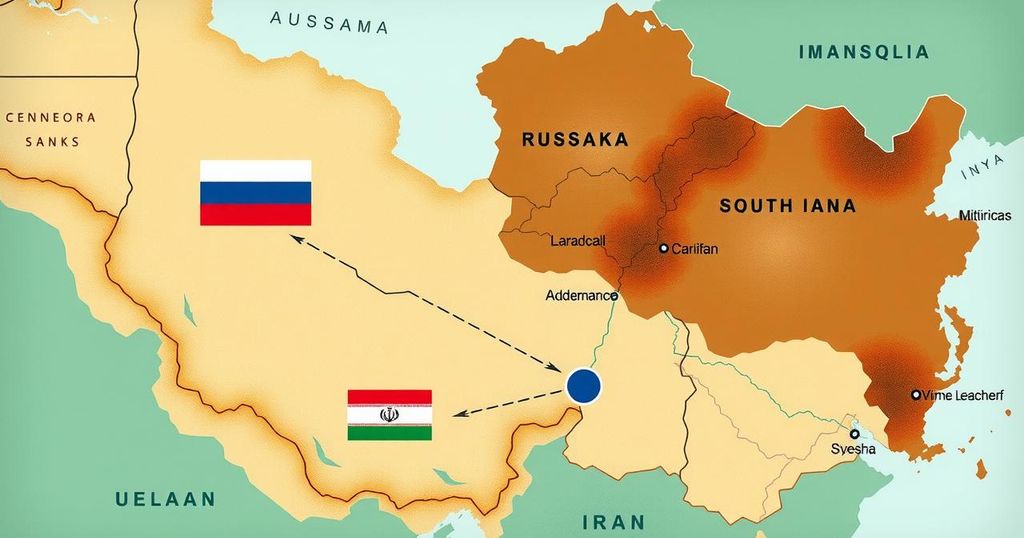Russian and Iranian leaders signed a treaty to strengthen bilateral ties, but diverging interests in the South Caucasus impede collaboration. Conflicts regarding territorial access, energy projects, and transportation routes pose significant challenges. Unless addressed, these differences likely prevent cohesive cooperation in the region.
On January 17, 2024, Russian President Vladimir Putin and Iranian President Masoud Pezeshkian signed the Treaty on Comprehensive Strategic Partnership to enhance bilateral relations. This treaty aims to advance cooperation in various sectors, including opposition to NATO expansion and development of the North-South Corridor. However, Russia and Iran encounter diverging interests, particularly in the South Caucasus, which could complicate their collaborative efforts.
In the South Caucasus, Russia and Iran exhibit conflicting objectives regarding issues such as the independence of Abkhazia and South Ossetia from Georgia and the military ties between Israel and Azerbaijan. Moreover, they differ significantly concerning transportation routes and energy cooperation with regional nations like Armenia, Azerbaijan, and Georgia. These disagreements pose a challenge to their ability to work cohesively in the region.
Recent developments highlight these differences, particularly regarding the Zangezur Corridor, meant to connect Azerbaijan and its exclave Nakhchivan. Following Putin’s visit to Baku in August 2024, Russia’s support for Azerbaijan drew criticism from Iran, as this corridor could limit Iran’s territorial access and influence. Iran remains firmly aligned with Armenia against Azerbaijan’s proposals regarding this corridor.
Additionally, the Aras Corridor between Azerbaijan and Nakhchivan stands as another point of contention. While Azerbaijan and Iran have agreed to develop this corridor, Russia’s lack of support appears to stem from its vested interest in controlling transport links through Armenia, as outlined in the Nagorno-Karabakh ceasefire agreement.
Furthermore, discrepancies manifest in their respective views on enhancing the Iran-Armenia railway, which poses competition against Russian-controlled rail services in Armenia. Russia’s reluctance toward this project is fueled by concerns over decreasing influence in Armenia.
The matter extends to natural gas exports to Armenia, where Iran and Yerevan previously signed a gas-for-electricity agreement. Despite plans to enhance the pipeline’s capacity, Russian involvement has led to limitations that hamper Iran’s potential competitive edge in the gas market. Consequently, past endeavors by Iran and Armenia to export gas to Georgia have encountered significant challenges.
The complexities of interest alignment, including shared opposition to NATO expansion and mutual projects such as the North-South Corridor, illustrate the intricate dynamics between Russia and Iran. However, without recognizing and addressing their diverging interests, collaboration in the South Caucasus will likely remain strained and uncoordinated.
The signing of the Treaty on Comprehensive Strategic Partnership between Russia and Iran marks a significant step in enhancing bilateral relations; however, diverging interests in the South Caucasus could undermine this partnership. Discrepancies in perspectives regarding transportation routes, energy cooperation, and support for regional developments highlight existing conflicts. If these issues are not adequately addressed, both nations may struggle to maintain a cohesive and aligned relationship in the region.
Original Source: jamestown.org






